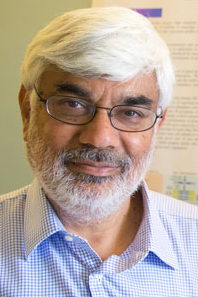Rong Fan
Associate Professor
Biomedical Engineering
Yale University
Seminar Information

Despite recent advances in single-cell genomic, transcriptional and mass cytometric profiling, it remains a challenge to collect highly multiplexed measurements of proteins produced from single cells for comprehensive analysis of immune functional state. We combine spatial and spectral encoding with ultra-high density antibody microarrays patterned in sub-nanoliter PDMS microchambers for co-detection of 42 immune effector proteins secreted from single cells, representing the highest multiplexing recorded to date for a single-cell secretion assay. Using this platform to profile human macrophages stimulated with pathogenic ligands reveals previously unobserved deep functional heterogeneity and varying levels of pathogenic activation. Surprisingly the subpopulation architecture is highly conserved throughout the cell activation process and collectively controls the homeostasis of macrophage-mediated innate immune response. A subset macrophage cells that display multiple effector functions, named polyfunctional population, are the “super warriors” dominating the immune defense against pathogens. This technology was also applied to examining the production of these immune modulatory factors in hematopoietic cells and their role in hematologic malignancy. Again, we identified the existence of polyfunctional subpopulation and this population is markedly increased in myeloproliferative disorders. Interestingly, both cancerous and “normal” hematopoietic cells in the disease compartment show increased polyfunctionality and skewed cytokine programs. Unexpectedly, these “normal” hematopoietic cells with abnormal cytokine functions contribute substantially to pathogenesis and therapeutic response. All these results underscore the complexity of phenotypically similar cell repertoire at the functional level in both protective immune defense and pathological conditions. Our technology permits a full-spectrum dissection of the immune functional states at the single-cell level and represents an enabling tool for next-generation clinical immune monitoring.
Rong Fan is Associate Professor of Biomedical Engineering. He received a Ph.D. in Chemistry from the University of California at Berkeley in 2006 where his research in Professor Peidong Yang’s laboratory was focused on thermoelectric energy conversion and nanoscale ion transport. After completing his doctorate he joined the Professor James Heath’s group at Caltech as a postdoctoral associate where he was working on the development of integrated microsystems for proteomic analysis of cancer biomarkers and tumor-immune interaction. In 2010, he joined the faculty of Biomedical Engineering at Yale University. His recent work is centered on the development of an array of single-cell omics technologies to analyze deep functional cellular heterogeneity in human cancers and the immune system. He is the recipient of numerous awards including the Howard Temin Pathway to Independence award (K99/R00) from National Cancer Institute, the NSF Early Stage Faculty Career Development (CAREER) Award and the Packard Fellowship for Science and Engineering.
